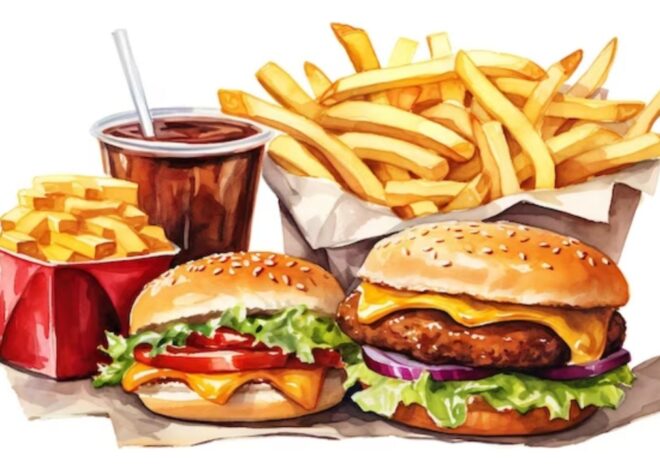
Europe Organic Grocery Market Report 2024-2032
The Europe organic grocery market is projected to reach a value of approximately US$ 132.82 billion by 2032. With a compound annual growth rate (CAGR) of 10.25% from 2024 to 2032. Renub Research estimates that the market’s value in 2023 stood at US$ 55.21 billion.
Organic food encompasses fresh or processed products grown using organic farming practices. Without synthetic chemicals like human-made pesticides and fertilizers, and free from genetically modified organisms (GMOs). This category includes fresh produce, meats, dairy, beverages, snacks, and frozen foods. Since the late 20th century. The organic food market has experienced significant growth, evolving into a multi-billion-dollar industry with its production. Processing, retail, and distribution processes. The World of Organic Agriculture report indicates that at least 3.7 million farmers across 191 countries manage over 76 million hectares of land using organic methods.
Europe Organic Food Market Growth Drivers
- Steady Expansion of Organic Farmland Organic farming is increasingly seen by farmers, consumers, and policymakers as a sustainable approach to agriculture, fostering environmental, social, and economic benefits. The European Union reports a steady increase in organic farming, with EU agricultural land dedicated to organic methods rising by over 50% between 2012 and 2020. Representing an annual growth rate of 5.7%. By 2020, organic farming accounted for 9.1% of the EU’s total agricultural area, contributing significantly to the organic food market’s growth.
- Rise of Vegan and Vegetarian Diets Plant-based diets are gaining traction due to their health benefits and reduced environmental impact. Veganism and vegetarianism have grown in popularity across Europe, with a significant proportion of the population embracing these diets. A survey on International Lifestyles suggests that over 3% of Europeans identify as vegan, 11% as flexitarian, and 23% as meat-reducers. This trend is fueling demand for organic plant-based products, driving growth in the European organic food market.
- Increasing Health Awareness Health-conscious consumers are driving demand for organic food and drinks. A recent IRI International survey revealed that 70% of Europeans now prefer healthier food options with less salt, sugar, fat, or calories. Google searches for “vegan food near me” surged by over 5,000% in 2021. Indicating a broader shift toward healthier eating and, consequently, a growing interest in organic food.
- Government Support and Emphasis on Sustainability Government initiatives play a pivotal role in promoting organic agriculture. The European Green Deal sets ambitious goals for sustainability, aiming to have at least 25% of EU agricultural land dedicated to organic farming by 2030. Funding for organic farming and sustainability initiatives further strengthens the sector’s growth. With policies extending to educational institutions and public institutions, such as in Copenhagen. Where 88% of school meals use organic ingredients.
Country Highlight: Germany Germany is poised to lead the European organic food market, driven by increasing health consciousness among consumer. And a strong presence of organic food retailers. A Mintel report indicates that 66% of Germans try to eat and drink healthily most of the time. And 73% believe healthy habits also benefit the environment. The German government aims to increase the share of organic farming to between 20% and 30% by 2030. Backed by significant initiatives like the Federal Scheme for Organic Farming and Other Forms of Sustainable Agriculture (BÖLN).
Cultural trends toward plant-based diets, reduced meat consumption, and sustainability are key drivers of growth in Germany’s organic food market. The 2023 German Nutrition Report shows that daily meat consumption dropped from 34% in 2015 to 20% in 2023. With a corresponding increase in demand for plant-based alternatives.
Industry News Major players in the European organic food market include Danone S.A., General Mills Inc., Sprouts Farmers Market Inc., The Hain Celestial Group Inc. The Kroger Company, United Natural Foods Inc., Dole Food Company Inc., and Newman’s Own. Recent developments include:
- Danone’s Collaboration with Else Nutrition: Danone has announced plans to collaborate with a vegan start-up, Else Nutrition, to develop plant-based baby formulas using almonds, buckwheat, and tapioca.
- Nestlé’s Plant-Based Seafood Launch: Nestlé is introducing plant-based seafood alternatives under the Garden Gourmet brand. Targeting European markets like Germany, Spain, and Italy.
- Ocado and Planet Organic Partnering with allplants: These retailers were among the first to offer plant-based meals by allplants, a growing plant-based food brand.
- Narayan Foods and MeliBio’s Plant-Based Honey: MeliBio, a producer of honey without bees, has partnered with Narayan Foods to distribute its products in Europe under the Better Foodie brand.
The evolving trends in health consciousness, government support, sustainability initiatives, and growing consumer interest in organic foods are propelling Europe toward a future. Where organic agriculture plays a significant role in feeding the continent’s population.
About the Company:
Renub Research is a Market Research and Information Analysis company with more than 15 years of experience in Research, Survey, and Consulting. Our research helps companies to take business decisions: on strategy, organization, operations, technology, mergers & acquisitions, etc. Till now we have published more than 9000 syndicated reports and worked on more than 750 custom research projects. Currently, we are supplying data to EMIS, Bloomberg, Thomson Reuters, etc. We support many blue-chip companies by providing them with findings and perspectives across a wide range of markets.


